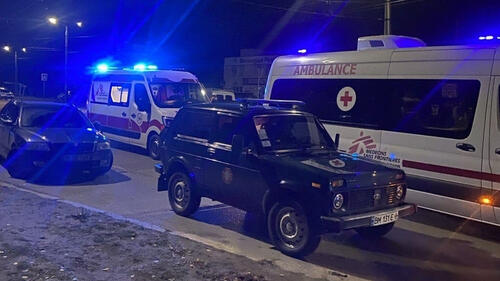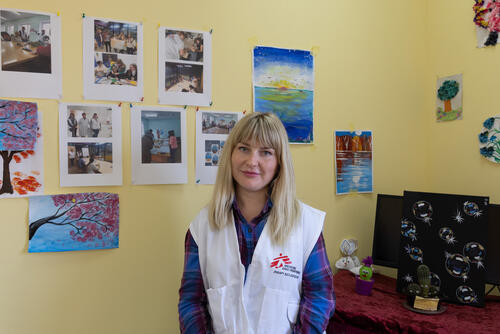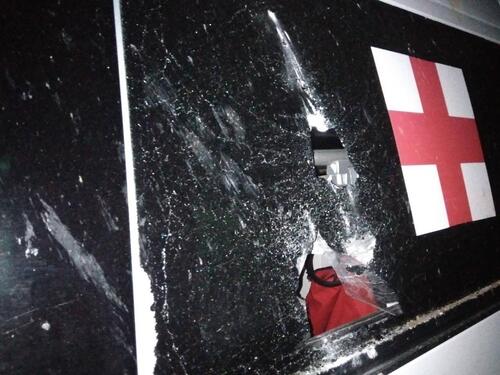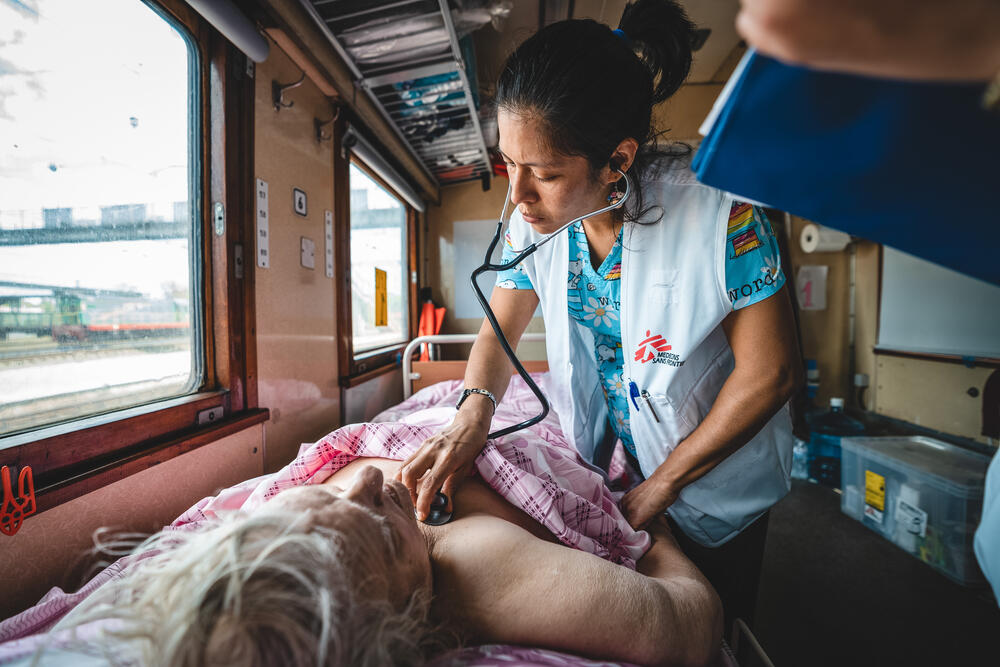Ukraine war
Fighting in Ukraine has killed or injured thousands of people and forced an estimated six million refugees to scatter across Europe.
Médecins Sans Frontières / Doctors Without Borders (MSF) teams were already working in Ukraine before the escalation in February 2022.
From the first days of the crisis, we have worked to deliver emergency medical aid to people still in Ukraine, as well as those seeking safety in neighbouring countries.
Ukraine crisis: latest news and stories



What is happening in Ukraine?
MSF teams are experts at working in conflict zones and complex humanitarian crises.
In Ukraine, we have witnessed the devastating impact of the conflict on civilians – cities have faced encirclement by military forces, heavy bombardment and limited access to food, water, power and medicines.
With periods of brutal and intense conflict in the east and south of the country, it’s estimated that almost four million people remain displaced within Ukraine itself. At the same time, even cities considered safe and far from the frontlines have experienced drone and missile strikes.
Many hospitals have struggled with dramatic shortages of medical supplies – from surgical tools to drugs for chronic diseases – while the mental health consequences of the conflict have been enormous.
Throughout everything, people have faced a terrible choice: stay in an unsafe place or flee home into uncertainty.
What is MSF doing in Ukraine?
MSF medical teams provide vital services to people in need, while our experienced logistics staff and robust supply chains ensure that critical supplies reach where they are needed.
Since the start of the war we have provided:
- Primary healthcare for vulnerable people who've stayed behind in areas with heavy fighting. This is often in the form of mobile clinics, which have even been held in underground metro tunnels. In 2023, MSF conducted 59,567 primary health consultations.
- Medical evacuations for patients from overwhelmed hospitals to safer areas – including via our innovative medical train dubbed a “hospital on rails”. In 2023, we transported 3,808 patients by train over 137 trips and carried out 10,542 ambulance referrals.
- Medicines and care for people with chronic illnesses, such as diabetes and hypertension, who have been cut off from the services they rely on. We have also continued to run services for tuberculosis patients.
- Emergency and surgical care for patients with traumatic injuries from shelling, airstrikes and shrapnel. In 2023, MSF carried out 1,991 emergency room consultations and performed 479 surgical interventions.
- Rehabilitation projects that focus on long-term care, including PTSD care and physiotherapy. In 2023, MSF carried out 4,393 physiotherapy sessions for 292 patients.
- Support, supplies and training to Ukrainian medics working in frontline hospitals
- Training and support for Ukrainian psychologists and first responders to provide mental healthcare for people who’ve faced intensely traumatic experiences
We have worked to rapidly scale up our medical and humanitarian response where the needs are greatest and where we can have a life-saving impact.
How can I help MSF in Ukraine?
Right now, our teams in Ukraine are treating patients injured or affected by the conflict. This is only possible because of donations from people like you.
By giving to our general funds today, you will be helping ensure we can respond to emergencies around the world, including in Ukraine.
Please donate today to support our emergency teams.
Click here to learn more about how we spend your money
Ukraine war: Our work in numbers
167,000
OUTPATIENT CONSULTATIONS BY MSF IN UKRAINE IN 2023
21,900
INDIVIDUAL MENTAL HEALTH CONSULTATIONS BY MSF IN UKRAINE IN 2023
3,808
PATIENTS EVACUATED BY MEDICAL TRAIN IN UKRAINE IN 2023
Our response in Ukraine: In-depth
Our priority in Ukraine is getting Ukrainian medics and organisations the supplies they need.
We're providing technical support and training on how to manage large numbers of wounded people, and relieving pressure by medically evacuating patients to hospitals in safer parts of the country.
While the initial focus was on surgery, trauma and intensive care needs, there is now a worrying situation for patients with chronic diseases such as hypertension, diabetes and asthma who urgently require drugs and support.
However, with full-scale warfare in some areas, movements are difficult, dangerous or simply impossible. Communication networks are not always available and there is a significant amount of misinformation.
Many people who stayed behind in conflict-hit areas – now retaken by Ukraine – were elderly or vulnerable people with chronic conditions. MSF teams are continuing to provide care and medications to help manage their health and prevent things from getting worse.
At the same time, we’re also seeing that people are emotionally shattered by what they’ve been through. Anxiety, panic attacks and trouble sleeping are common symptoms amid an acute and widespread mental health crisis.
In response, we have increased our focus on mental health activities, including supporting Ukrainian psychologists and training first responders to administer psychological first aid.
MSF in Ukraine before the conflict
Before the escalation in fighting, MSF teams were already working in Ukraine’s eastern Donbas region, where conflict broke out in 2014.
Despite a ceasefire in 2015, regular violence and access to healthcare became a daily challenge for people living along the ‘contact line’. Our teams ran projects providing treatment for chronic illnesses including HIV/AIDS, TB and diabetes, as well as mental health support.


